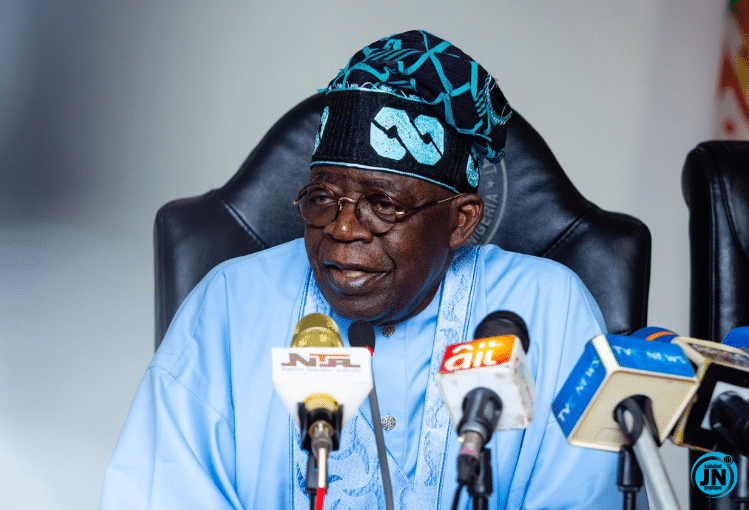The Nigerian government has successfully disbursed a total of ₦85 billion (approximately $54 million) as its community levy contribution to the Economic Community of West African States (ECOWAS), marking a significant milestone in the nation's financial obligations to the regional body. This payment was officially confirmed by ECOWAS Commission President Omar Touray on Sunday, during his opening remarks at the 66th Ordinary Session of the Authority of Heads of State and Government of ECOWAS. The session was held at the State House Conference Centre in Abuja, Nigeria, and brought together key political figures and leaders from across the region to discuss important matters affecting ECOWAS and its member states.
According to reports, the ₦85 billion contribution covers Nigeria’s levy obligations from January 2023 through to July 2024. This payment is of particular significance as it represents Nigeria's commitment to fulfilling its financial responsibilities within ECOWAS, which has been a longstanding issue for the organization. In his address, Touray expressed his satisfaction, noting that this payment marks a historic moment for the region. He stated, “The good news, and indeed, a very good news is that for the first time in 19 years, Nigeria has decided to pay 100 per cent of its community levy from 2023.”
Touray went on to elaborate further, saying, “I am therefore pleased to announce that on Friday 13, December 2024, Nigeria paid N85bn and $54m representing 100 per cent of the 2023 levy and the levy of 2024 up to July 2024.” This news was hailed as a major step forward for ECOWAS, as it helps to ensure the financial stability of the organization, which relies on contributions from its member states to fund its various initiatives and operations. The payment is seen as a testament to the leadership and commitment of Nigeria’s President Bola Tinubu, as well as the Nigerian government and its people in supporting the ECOWAS community and its shared goals.
While celebrating this achievement, Touray also expressed concerns about the broader financial health of ECOWAS, particularly in regard to the ongoing delays in the remittance of the community levy by some member states. He highlighted that several countries are still behind in making their financial contributions, which poses a threat to the overall stability and effectiveness of the organization. He stressed the need for these arrears to be addressed promptly in order to maintain ECOWAS’s financial sustainability. Touray stated, “Excellencies, I cannot conclude my statement without touching on the finances of the community. Here, I have both bad news and good news. The bad news is that the community levy remittances continue to be slow. A number of countries have fallen behind with their community levy remittances. This needs to be reversed.”

Despite these financial challenges, the payment from Nigeria represents a critical development in the ongoing efforts to strengthen the ECOWAS framework and ensure that the community can continue to operate effectively. In addition to this financial matter, the 66th Ordinary Session of the Authority of Heads of State and Government also focused on a variety of political and security issues affecting the region. Notably, the meeting is presided over by Nigeria’s President Bola Ahmed Tinubu, who assumed the role of Chairman of the Authority of Heads of State and Government in June 2023. He was re-elected for a second one-year term in June 2024, continuing his leadership in guiding the region through a range of complex issues.
The summit is also taking place amidst rising tensions within the region, particularly following the decision by Burkina Faso, Mali, and Niger to withdraw from ECOWAS in January 2024. These developments are expected to feature prominently in the discussions, as the leaders consider the political and economic implications of these withdrawals, as well as potential responses to the ongoing challenges of regional cooperation and unity. One of the key topics on the agenda is an evaluation of the sanctions ECOWAS has imposed on the three countries in response to their actions.
In addition to addressing these political matters, the summit also aims to tackle the ongoing regional security challenges, such as the rise of terrorism in the Sahel region and the political instability in several ECOWAS member states. The leaders are expected to engage in talks about strengthening regional security and finding coordinated solutions to these pressing issues. Furthermore, there will be a focus on the countries currently under military rule, with the goal of accelerating transitions to civilian governance and restoring democratic structures in these nations.
On the economic front, the leaders will discuss the implementation of the ECO, a proposed single currency for ECOWAS that has been in the works for years. The adoption of the ECO would represent a major step towards greater economic integration within the region, and discussions are expected to focus on ways to expedite its implementation in light of the evolving economic landscape. As of December 2024, the remaining member states of ECOWAS are Benin Republic, Cape Verde, Côte d’Ivoire, The Gambia, Ghana, Guinea, Guinea-Bissau, Liberia, Nigeria, Senegal, Sierra Leone, and Togo.

